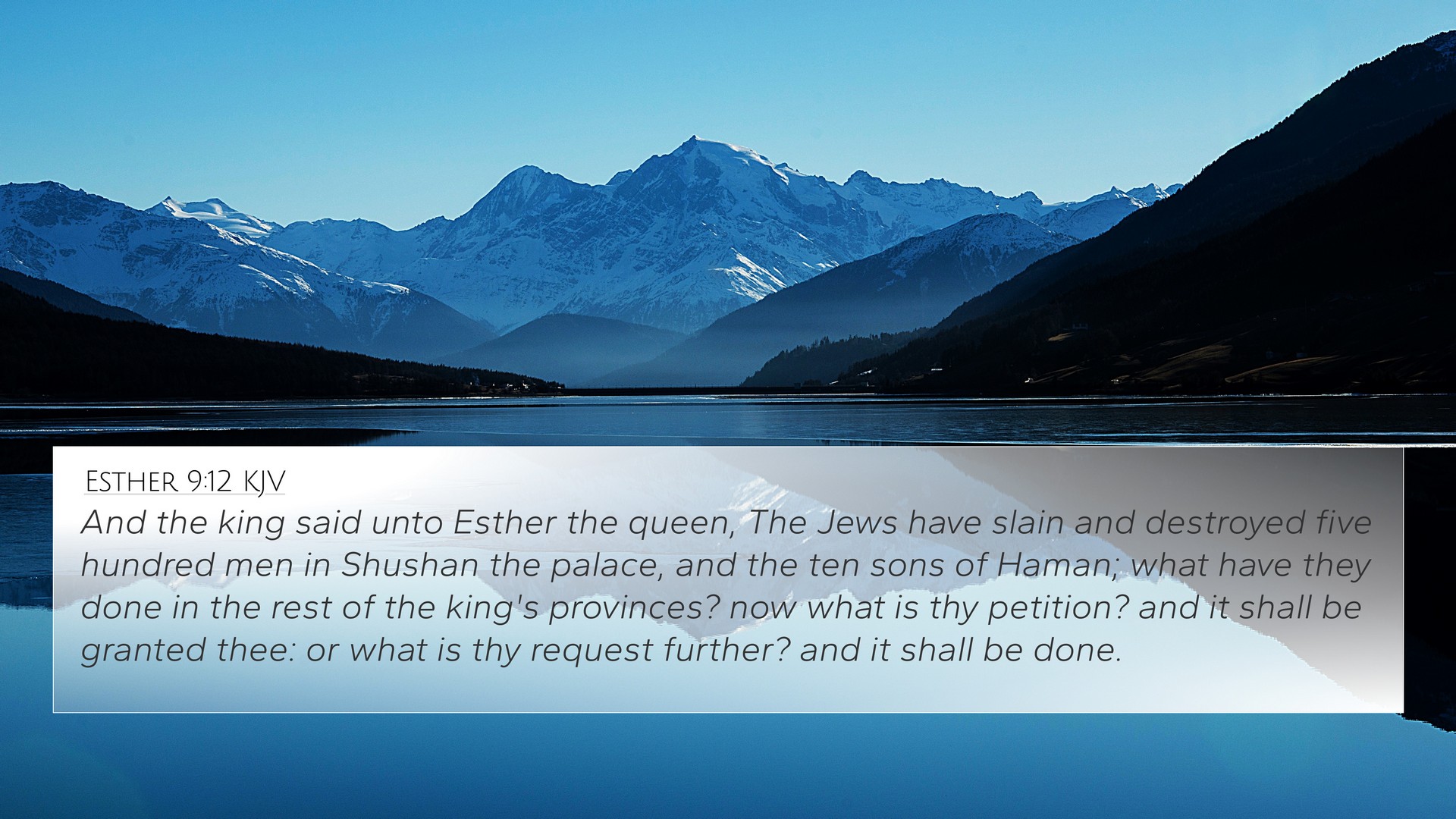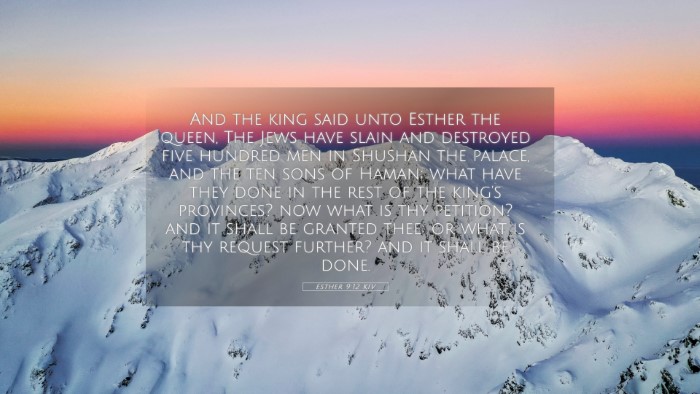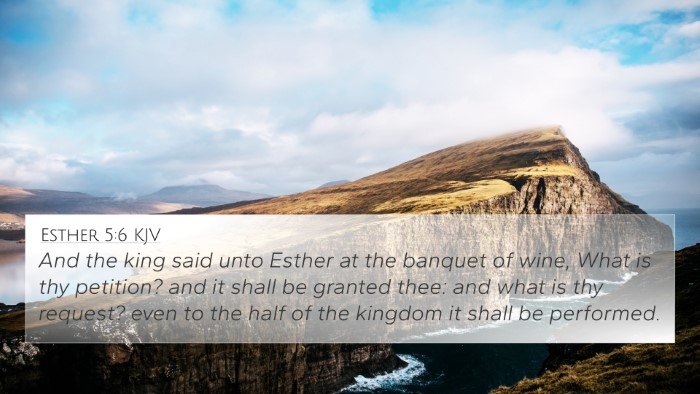Understanding Esther 9:12
Esther 9:12 states: "The king said unto Esther the queen, The Jews have slain and destroyed five hundred men in Shushan, and the ten sons of Haman; what have they done in the rest of the king's provinces? now what is thy petition? and it shall be granted thee: or what is thy request further? and it shall be done." This verse occurs at a pivotal moment in the book of Esther, highlighting the significant victory of the Jews over their adversaries.
Verse Meaning
The events detailed in Esther 9:12 reflect the culmination of the Jews' struggle for survival against Haman's plot to annihilate them. The king's inquiry about the extent of the slaughter signifies his concern over the broader implications of this victory.
Insights from Commentaries
- Matthew Henry: Notes the king's astonishment and the sheer number of enemies defeated, pointing out the miraculous deliverance of the Jews. He emphasizes that God’s providence was at work in turning their sorrow into joy.
- Albert Barnes: Highlights the importance of the king's question regarding the Jews' actions in the other provinces, suggesting a confidence that this victory was not just limited; it was a significant blow to their enemies. Barnes explains that the mention of Haman's sons emphasizes the complete dismantling of his plans.
- Adam Clarke: Focuses on the king's role as both a ruler and protector in this scenario. He delves into the implications of Esther's petitions and how they symbolically represent the voice of a nation seeking justice and retribution.
Cross-References and Thematic Connections
To gain a fuller understanding of Esther 9:12, we can explore several cross-references that connect to its themes of deliverance, divine justice, and vindication:
- Exodus 17:14-16: God's promise to blot out the memory of Amalek, establishing the precedent for divine justice against enemies.
- Psalms 56:9: A declaration that when enemies turn back, it is a sign of God's deliverance.
- Psalms 118:7: Insight on the Lord’s protection against adversaries.
- Isaiah 54:17: A promise that no weapon formed against the people of God shall prosper, reflecting the assurance given in Esther's time.
- Proverbs 21:30: A reminder that the counsel of the Lord shall stand, echoing the inefficacy of Haman’s schemes.
- 1 Corinthians 15:57: An acknowledgment of victory through Christ, paralleling the Jews' victorious celebration of their deliverance.
- Romans 8:37: Affirmation that believers are more than conquerors, resonating with the triumph experienced in Esther's narrative.
- Revelation 12:11: The narrative of overcoming the adversary by the blood of the Lamb, aligning with the theme of redemption in Esther.
Concluding Reflections
Esther 9:12 encapsulates the profound themes of deliverance, justice, and divine vindication. It serves not only as a historical account but also as a source of inspiration for those facing adversities today. The connections and cross-references provide a broader understanding of God's faithfulness throughout scripture.
This verse highlights the significance of seeking God's favor and protection in times of distress, reminding believers of the power of prayer and intercession, both illustrated in Esther's advocacy for her people.




